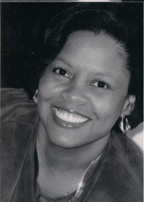 ” ‘Let My People Go’ is a play about history, not just black history, but racial and sexist domination and oppression,” said Valda Boyd Ford, director of UNMC/NHS Community and Multicultural Affairs.
” ‘Let My People Go’ is a play about history, not just black history, but racial and sexist domination and oppression,” said Valda Boyd Ford, director of UNMC/NHS Community and Multicultural Affairs.
The campus community is invited to see a free performance today at 11:30 a.m. in the College of Nursing’s Cooper Auditorium.
Ford also is founder/director of the Center for Human Diversity, the recipient program of the proceeds from the show’s Feb. 28-March 1 performances at The Rose Blumkin Performing Arts Center. Show times are at 8 p.m.
“The play paints a backdrop for people of today,” Ford said. “Once you listen to the voices in the play, you know why there is still so much work to be done. The history of that era has far too often been romanticized or cut down to a few short lines that cannot reveal the depth of the pain, the depth of the scars and the time it will take for healing to occur.
“So many people think that because segregation is no longer legal, because we enacted laws that ‘guarantee’ equality and justice for all people, because we have women’s rights, that we can all hang up our placards and go home. The Center for Human Diversity presents this play as a means of opening a discussion about aspects of history we haven’t been privy to. Just as when we presented the play to a thousand people in 2000, I believe that many hearts and minds again will be opened to the opportunity created for dialog and positive change.”
“Let My People Go: Trials of Bondage in Words of Master and Slave” is based upon the research of Loren Schweninger, professor of history at the University of North Carolina at Greensboro. He personally read through more than 18,500 county court and legislative petitions filed prior to the Civil War on slavery issues and found personal tragedy caught in a tangled maze of state and federal laws. Schweninger’s research was taken from the Race, Slavery and Petitions Project Archives housed at UNC Greensboro and adapted for the stage by Brenda P. Schleunes, artistic director of the Touring Theater Ensemble.
The Center for Human Diversity provides a year-long educational curriculum for higher level managers and change agents to develop strategies that adequately and accurately provide care and service to people who may speak different languages, have different cultural beliefs or may have different levels of literacy and physical/mental ability.